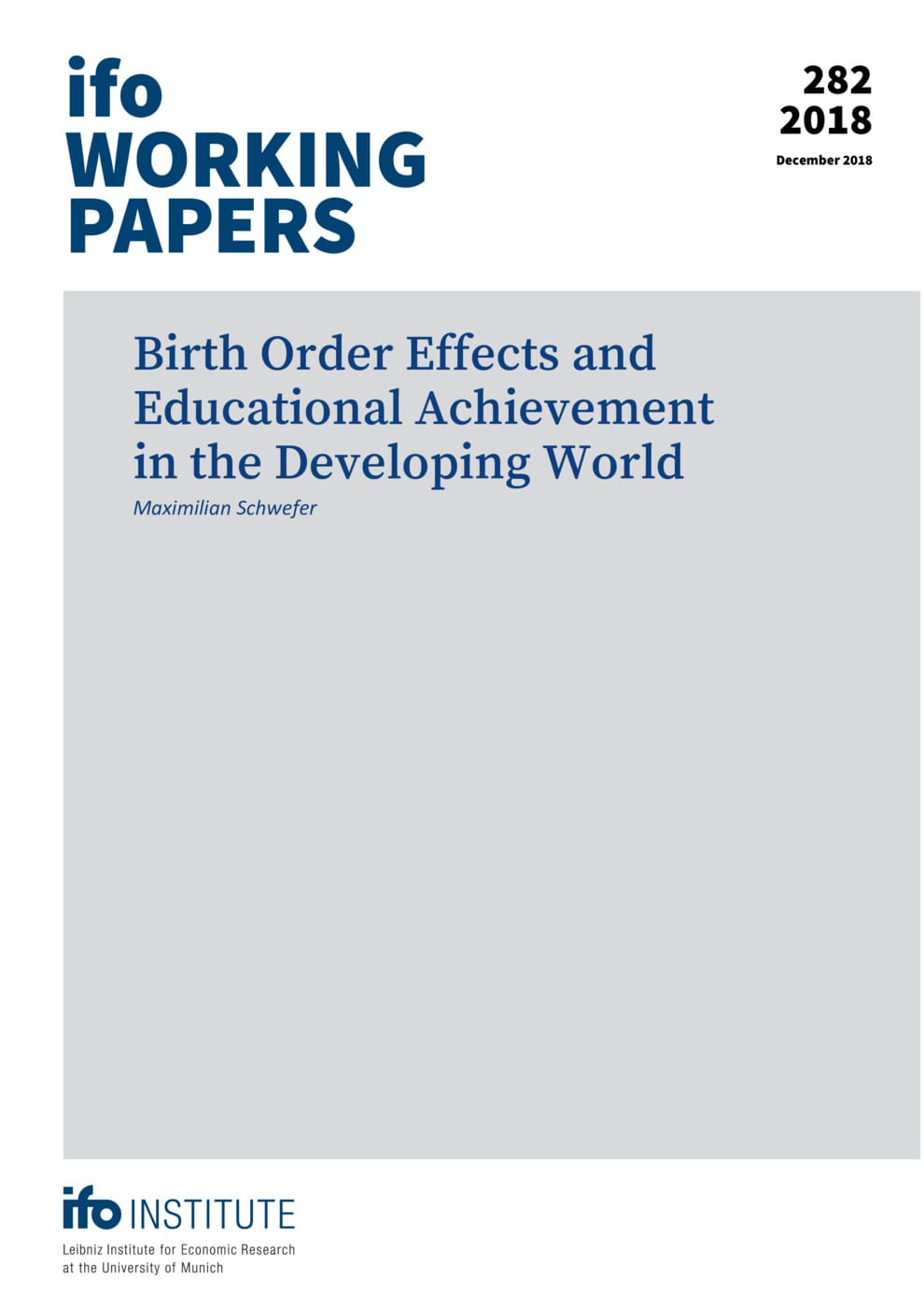Working Paper
Birth Order Effects and Educational Achievement in the Developing World
Maximilian Schwefer
ifo Institute, Munich, 2018
ifo Working Paper No. 282
ifo Institute, Munich, 2018
ifo Working Paper No. 282

Studies on the role of birth order in educational achievement in developing countries have yielded contradictory findings. This study uses unique and novel data on 4,362 siblings living in alternative care families in 54 countries. Results suggest negative birth order effects among biological siblings, implying inferior outcomes for laterborns. A second analysis offers reasons for why previous studies might have found contradictory results. Three sources of heterogeneity are surveyed. Extreme hardship, parental gender preferences, and tutoring between siblings are identified as moderators of birth order effects. The findings can inform development interventions by helping to prioritize individuals in highest need.
Schlagwörter: Birth order, education, child outcomes, developing countries
JEL Klassifikation: I200, J130